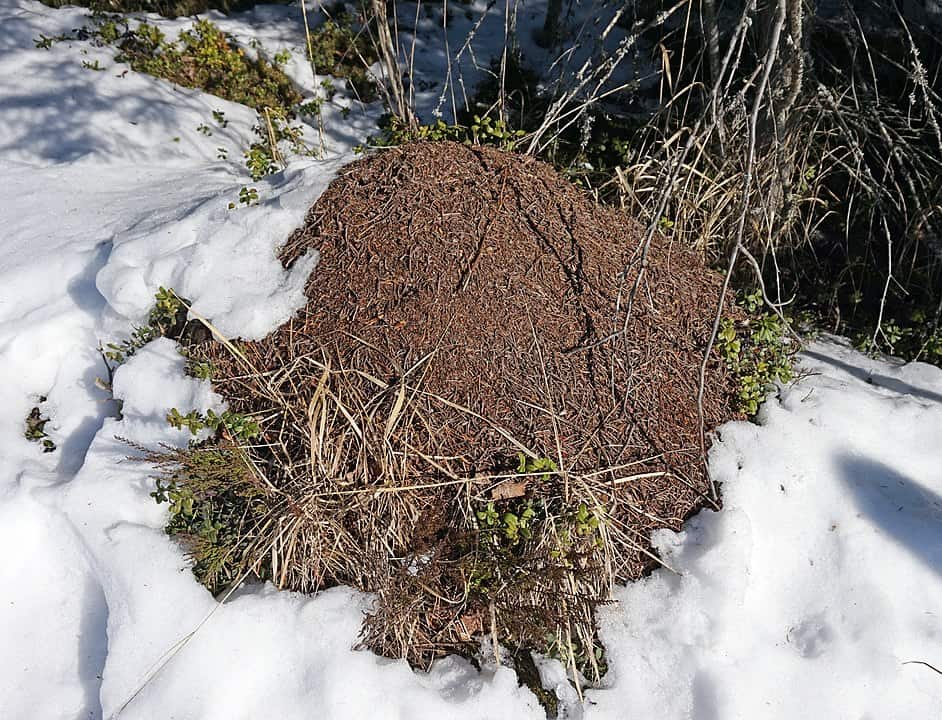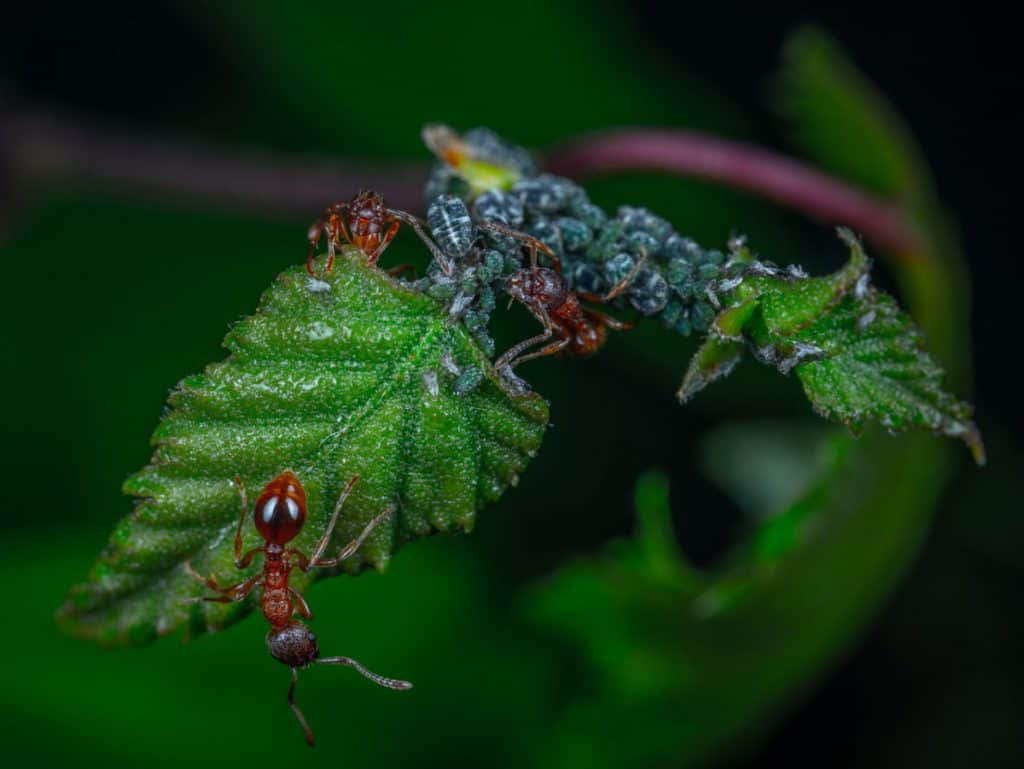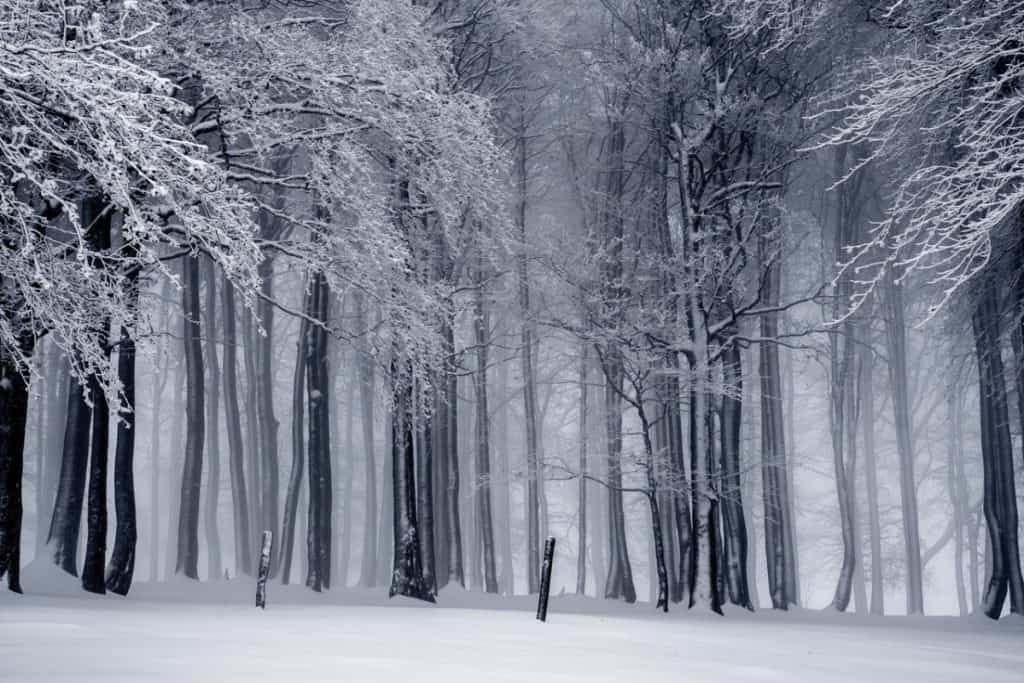
What Do Ants Do In The Winter Months?
During the Spring, Summer, and Fall you may find ants everywhere outside. Whether you spot some on the sidewalk or notice a cluster interrupting a picnic in the park, ants are all around…except sometimes quite suddenly in the Winter. Once the temperature gets cold ants seem to disappear for a number of months until the temperature gets warmer again. All of these ants can’t necessarily die, so where do they go?
Basically, because ants are cold-blooded/exothermic they can find themselves dramatically impacted by temperature changes. For this reason, different kinds of ants will generally get together in a place that conserves warmth, huddle-up and enter diapause, a lower metabolic state that is a lot like hibernation. Should ants sense the temperature going below 75 degrees Fahrenheit or so consistently they will generally retreat to a set of group warmth. With that said, it is smart to go into details of exactly where these warm places can be, and even cover certain ants who are uniquely suited for cold weather. Let’s break it all down in a question and answer format now!
If you enjoy reading this article, why not check out our articles on What Can Ants Climb? This surprised me! and Why Do Dead Ants Attract More Ants? Everything you need to Know
So…Where Do Most Ants Live During the Winter?
Depending on the type of ant they will find different ways to stay warm during the winter. A good deal of species such as Wood ants can create huge dirt mounds that help soak up the sun and warm the colony underneath. Interestingly it is not uncommon for these ants to basically split-off into smaller and loosely-connected colonies with their own queens, enter diapause, and once the Spring arrives any colonies that lost their queen will basically merge-back with others, keeping the population stable thanks to the, “Insurance,” of extra queens. Some ants try to plan for all possible problems, clearly! If you’re interested in this topic, we have a whole article about it: Do Ants Hibernate in the Winter? Let’s Find Out.
What happens to ants in winter?
One unique exception is the acorn ant AKA Temnothorax. These incredibly tiny ants form little colonies to survive the winter above-ground in things like walnuts, fallen tree limbs/twigs, and yes, acorns. This can be extremely risky and lead to the temperature getting so cold the ants freeze to death regardless of their diapause, but being above-ground helps these ants be able to tell right when the temperature has become perfect to start foraging for food in the Springtime, so that head-start is (possibly) worth the increased risk of death for these ants.
Wait, Where do Carpenter Ants go in the Winter?

Ah yes, Carpenter ants. True to their name they like to nest in wood. As wood can be pretty porous these ants will often need to clump-up together and enter diapause just as other kinds, sometimes even, “Over-wintering,” for an extended period of time if it is not solidly warmer for a good deal of time.
Now, seeing as how many houses have a good deal of wood in them, and can be pretty warm and toasty, that can make houses quite the appealing location for Carpenter ants during the Winter. The tricky thing is you may think they came and went if a bunch of ants are in your house in the Fall and then seem to disappear for a good deal of time…but the unfortunate truth is they may just be in diapause and once the temperate gets warm again they will do what ants excel at doing, namely, going-out and foraging for food. In fact, a house that is very well insulated might find itself very suitable to Carpenter ants who never have to enter diapause and can be a nuisance all Winter long. This of course can mean the ants you thought were gone from your house suddenly return with a vengeance as soon as the temperature rises again or even worse, never seem to stop being a pain. This leads to the next question…
How Do you Get Rid of Ants in the House During the Winter?
As has been established, the kinds of ants you are most likely to see in your house during the Winter are Carpenter ants. Some houses may see them in excess in the Fall and Spring with them seemingly gone in the Winter, but really well-insulated houses might see them all year long (so congrats on having a warm house and sorry it leads to more ant-troubles)! Just how do you get rid of these ants during the winter, then? Well, ignoring it is not a good idea as simply thinking, “Oh, it’s just some ants,” is understating the problem you may face. If you have a big ant problem in your house, never fear, our article What Can Ants Bite and Chew Through? has a recipe for home-made natural ant poison.
Do carpenter ants go away in winter?
Carpenter ants are literally shredding your wood to make their homes (don’t confuse them with termites, which actually eat wood), and can cause a great deal of structural damage if they are allowed to keep growing and growing their colony/colonies. Small actions such as being sure not to have food easily sitting-out in cabinets (an open bag of chips is quite inviting) or spraying entryways (doors and windowsills) can help with combating some ant-interlopers. Carpenter ants can do a lot of damage… if you’re experiencing problems with them, you may want to read What Can Ants Damage? for more information.
How do I get rid of Carpenter Ants permanently?
But if you’ve got a colony of Carpenter ants in your house it is highly recommended you seek out professional pest control experts who can make sure your small-and-annoying issue doesn’t turn into a big-and-expensive problem if left unchecked.
I Don’t Have an Infestation, so Why Do I Still Have Ants in the Winter?

Even if you don’t have an infestation of Carpenter ants that does not mean other kinds such as Wood ants might at certain points find their way into your house. If the temperature starts dropping ants are going to work their hardest to find someplace comfy they can survive the temperature-drop.
This may at times result in those days where the temperature gets warm enough for some ants to emerge and forage, but as it gets alarmingly cold again (for them) they seek-out safety, and your house is pretty warm and seemingly-safe to ants that don’t realize you will most likely spray or step-on them. Seeing the occasional ant during the winter is a pain, but not abnormal. Taking the earlier-discussed steps of making sure you don’t have food sitting-out (as much as a fruit bowl looks pretty it also is like a buffet for ants) and spraying possible entryways for ants can work wonders in reducing their showing-up to your house as unexpected and uninvited as that relatives who never lets you know in advance which holidays they’ll be dropping-by for.
Do Ants Ever Die in Cold Weather?
While ants theoretically could freeze to death and it has been seen with the likes of the acorn ant, it has to be extremely cold for an extended period of time for ants to go from their hibernation state of diapause to actually freeze to death. Honestly, it is more likely that the length of time it is relatively cold outside can pose more of a risk to ants as it is possible the temperature could stay low for such a long time they run-out of body fat they have stored to survive the cold and essentially starve to death (no fat to survive on and the weather is too cold to move equals a dead ant).
How cold is too cold for ants?
This is not to say overwintering is always deadly as some species that at times overwinter like the Carpenter ant can store up a ton of body fat and be able to survive a period of time with lots of cold weather, it just means that a really long winter can be deadly for some ants–this makes the insurance policy of the earlier-mentioned Wood ants having extra queens look pretty wise, eh?
Do Any Ants Like the Cold?
Now, with all this talk of ants that clearly dislike the cold and work their hardest to avoid it there is the need to touch-upon an exception. There is the ant that basically does everything backward compared to other ants, essentially thriving in the cold and hiding-away when it’s hot. It does so well in the cold weather it is literally named the Winter ant AKA Prenolepis imparis.
The Winter ant is found in much of North America active during cold months when other species of ant it would otherwise have to compete with are most likely hidden-away, and it is extremely aggressive towards other ant species, releasing secretions that are lethal to other ants should it encounter any kind of challenges for its desired food. It is worth noting that while the Winter ant will at times enter homes it is not a, “Pest,” species of ant. It does not damage your house like Carpenter Ants and you might see it in the Winter, but the discussed steps of keeping your entryways sealed-up tight should keep them from popping-by much.
Final Thoughts
Now that you have finished this article you know that ants survive in the Winter by finding a safe warm space and hanging-out there until the temperature is suitable again to start foraging. Ants generally will not freeze to death in the cold so much as they may starve to death if not given the chance to gather more grub, and there are some ants that actually thrive in the colder months and will aggressively respond to any other ants invading their unique-time of foraging when it’s chilly out.
Ants in your house during the winter can sometimes be a relatively minor concern if it is just the occasional Wood ant or two, but now you’re aware that if you are dealing with a colony of Carpenter ants that is something to never take lightly and immediately call pest professionals about. Clearly ants are very hardy when it comes to surviving the Winter and while they often may use a variety of methods they all sure do work hard once it is warm enough (or cool enough in the case of the Winter ant)!
If you enjoyed reading this article, why not check out our articles on Everything You Need to Know About Ants in Your Walls and Are Ants Active at Night?
Sources:
Recent Posts
Tiny Black Bugs in Bathroom NO WINGS: What They Are and What to Do!
Finding tiny black bugs in your bathroom can be uncomfortable, to say the least. Especially if they are persistent, or they appear in very large numbers, which they often like to do. When it...
Tiny Black Bugs in Plant Soil - What Are They & What To Do About It
A short horror story: You get a new houseplant. You do your best to take care of it. You’ve ensured that it has the right soil, the right amount of sun, it gets enough water. And then one day, you...

